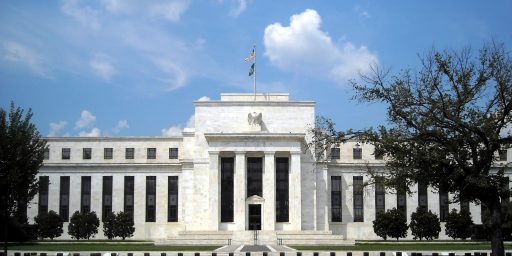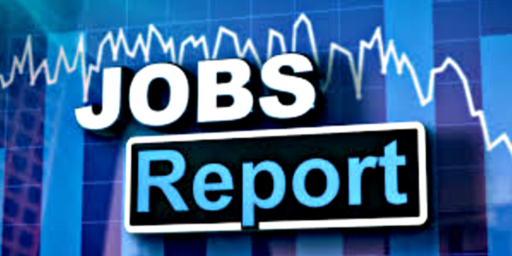The Fed Ruins Investors New Year’s Hopes
The release of the Federal Reserve Board’s December minutes appears to be like having the police show up on your door step during a party.
NEW YORK (CNNMoney.com) — The market was in a festive mood to start 2007 until the minutes from the last Federal Reserve meeting of 2006 were released.
The Dow industrials, S&P 500 and Nasdaq composite all gave up big gains and headed lower after the release of the minutes, which showed that the nation’s central bankers were worried about a slowdown in economic growth late last year but at the same time concerned about inflation. Later in the afternoon, the Dow and Nasdaq scratched back into positive territory while the S&P 500 ended nursing a slight loss.
It is a safe bet that when the Fed is worried about an economic slow down and inflation that the Fed will go after inflation first. This gets back to the issue of trying to use interest rates and money to manage economic growth. Back in the 60’s and the 70’s macroeconomists relied on the Phillip’s curve trade off between inflation and unemployment (higher inflation meant lower unemployment) lead eventually to stagflation. Basically, people figured out that higher inflation didn’t mean more money in their pockets and henced didn’t respond in ways that lowered unemployment.
“The Fed seemed a bit more focused on the weakness in growth than I had thought they would be. Stock investors had come to the conclusion that this would be a perfect landing and that the economy would be back on track soon,” said Mark Zandi, chief economist with Moody’s Economy.com.
Another economist suggested the market may be worried that the Fed won’t be cutting interest rates as soon as some had hoped. To that end, the Fed said in its meeting minutes that inflation remained “the predominant concern.”
The Fed’s next meeting is at the of this month. But John Norris, chief economist and senior fund manager with Morgan Asset Management, said the Fed may not look to lower rates until its May meeting at the earliest.
One way around the problem above in regards to inflation and using monetary tools to influence the economy is via reputations. The Fed can build a reputation to be hawkish on inflation to the point of even sending the economy into a recession to keep inflation low.
The fed funds rate now stands at 5.25 percent. That’s the highest that interest rates have been since January 2001, though they’re still relatively low by historical standards.
Well, duh, after that the economy went into recession and the Fed started cutting interest rates to their lowest point in about 50 years. The above make it sounds like the fed funds rate is exceptionally high, when in fact it is back to level that is more consistenet with what we say all throughout the 1990’s.
“It’s pretty clear that there’s a ton of exuberance out there. People were buying this morning like there was going to be no other chance to buy stocks,” said Barry Ritholtz, chief market strategist with Ritholtz Research & Analytics, an independent market research firm in New York.
Ritholtz added that the market may have been premature to think that a rate cut would take place in the first half of the year. “It appears people have become a bit complacent. It could be another six months before the Fed cuts unless the economy really rolls over and dies. This is the slow-motion slowdown,” he said.
And in recent months, Fed Chairman Ben Bernanke and other Fed members have said in speeches that the worst may be over for the housing market and that housing will stabilize in 2007.
In other words, don’t expect a rate cut anytime soon. If the worst is over in the housing market then it is quite possible that the Fed will see the softness in the economy as something of less concern than inflation and with oil prices still rather high it stands to reason that expecting a rate cut this month or the next was a bit much.
We could be in one of those odd situations where some minor bad economic news is good in terms of the stock market and interest rates. Some bad news, that isn’t too bad, could prompt the Fed to cut rate sooner than later.






——————
New Secretary-General to Fill 2 U.N. Posts This Week, Could Bring Controversy
In the past 50 years, everywhere I have seen my fellow economists rising to positions of power, especially as central bankers. Despite the rhetoric, they use power as reckless as everyone else. To be concerned about inflation today makes no sense to anyone familiar with the history of inflation in the US and the rest of the world since WWII. By the way, your reference to 5.25% being a “low” interest rates by historical standards does not take into account the low level of today’s inflation and other factors that justify a lower FED rate (this is true of central banks’ rates in many other countries, including Chile where I live).
The Fed Ruins Investor’s New Year’s Hopes
*Which* investor’s hopes? You never say.